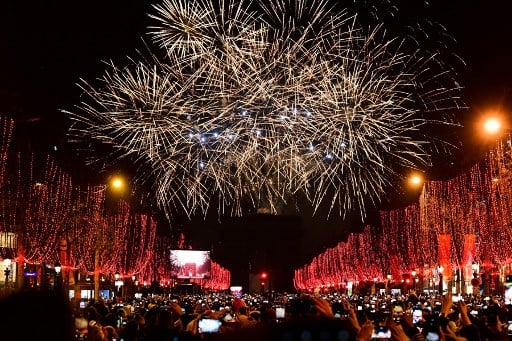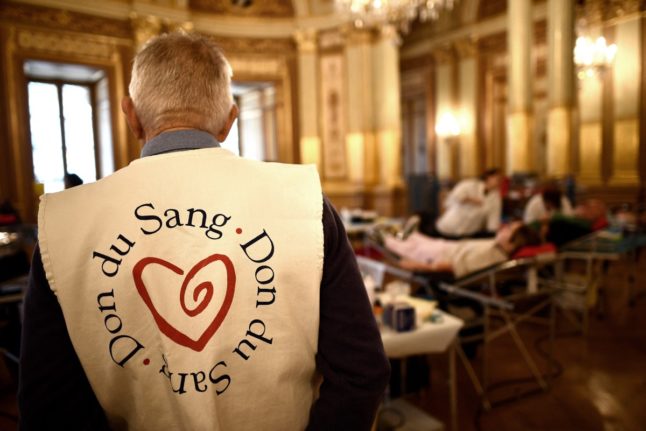Will the curfew be in place?
Yes, France's 8pm to 6am curfew will not be lifted on December 31st as it was on December 24th, so most people will have to spend the evening at home, although sleeping over at the home of a friend or relative is allowed.
Bars, restaurants and nightclubs will of course be closed and large gatherings in public are banned. Police will be out to break up groups of more than 10 people who have gathered in a public place and will be checking the reasons of anyone who is out after curfew, so forget about counting down to midnight in a public place.
And definitely forget about kissing strangers at midnight, that's not Covid-compliant at all.
READ ALSO What next for France after 'Christmas truce' on lockdown rules?
Can I meet up with friends and family?
Yes. You can have people over as long as they arrive before 8pm and leave after 6am. However, the government has urged people to keep gatherings small during the holiday period: the recommended limit is six adults, although this is a recommendation and not a rule.
Six maximum. pic.twitter.com/G9hs0K8HF0
— Emmanuel Macron (@EmmanuelMacron) October 14, 2020
Can I travel to a different region?
Travel between regions has been allowed since December 15th, so you can visit family and friends in different parts of France for New Year’s Eve.
Can I watch the fireworks?
The traditional fireworks in Paris have been cancelled, but they have been replaced with live-streamed concerts by the likes of David Guerra and Patti Smith – and Jean-Michel Jarre, the electronic music pioneer, who will be playing a concert titled Welcome to the Other Side from inside Notre-Dame cathedral.



 Please whitelist us to continue reading.
Please whitelist us to continue reading.
Patti Smith live on NYE???? Weyhey, life just got brighter. Thanks.